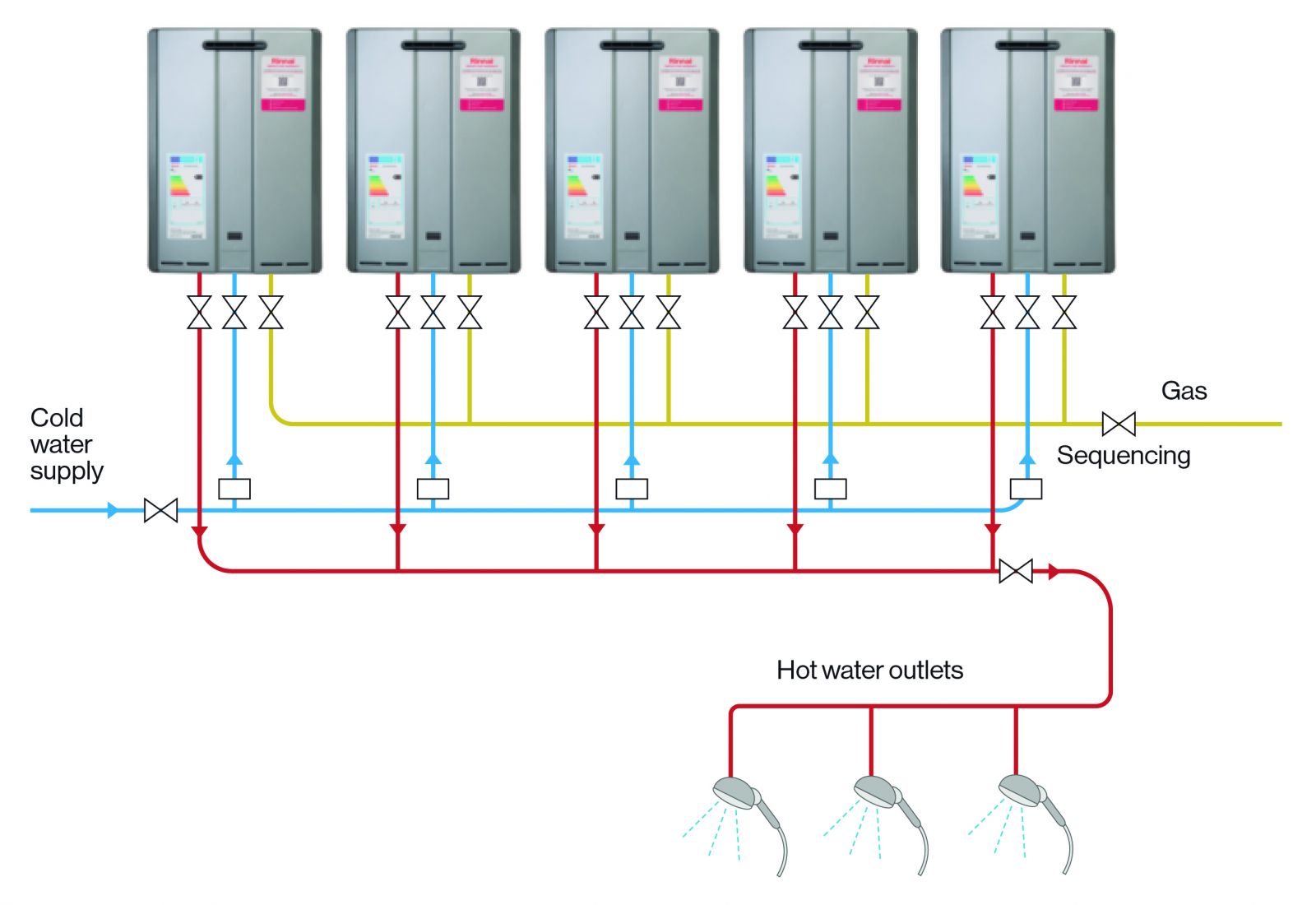Limitless Hot Water On Demand For FM Contracts
Rinnai, makers of continuous flow hot water delivery units that give limitless, on-demand supplies of hot water, is offering FM and their end-users an...
Read Full Article
As buildings are reoccupied, Rinnai is recommending a series of procedures on continuous flow hot water systems before bringing them into active service.
All hot water delivery systems in any commercial or institutional site need to be given detailed consideration to the potential of Legionella proliferation during the shutdown, says Rinnai.
ACOP L8 guidelines, produced and published by the Health & Safety Executive, lists the details and necessary procedures to ensure system cleanliness. According to ACOP L8, continuous flow direct to outlet systems are seen as low risk for Legionella, due to it allowing for a full turn-over of water volume, no stored water and accurate temperature control.
However, stagnant water can pose a risk to users of a building, so it is essential that any water system is prepared and refreshed after a building has been left unused.

Picture: A diagram showing a hot water system
Rinnai advises starting with an inspection. The first and most important point of a comprehensive and detailed inspection of the appliances is to ensure they can operate to maximum efficiency, especially if there is no record of what procedures were taken when the system was shut down.
So, to bring a continuous flow hot water heating system back to into active service, Rinnai notes the following procedures and consideration:
Other modes of hot water delivery systems will have their own sets of procedures. Rinnai’s advice to site managers and maintenance personnel is to ensure specific sets of information for their particular system is obtained.
This may be time-consuming, but it is important to check for possible Legionella given that the lockdown has been here for several weeks – and it has been an ideal time for bacteria proliferation.
Sites may also want to consider switching to a continuous flow system of hot water delivery. This will ensure a limitless supply of hot water is available, provided there is no interruption to gas and water supplies.
Picture: A graphic showing Legionella bacteria. Image credit: Water Treatment Services Ltd
Article written by Ella Tansley | Published 23 June 2020
Rinnai, makers of continuous flow hot water delivery units that give limitless, on-demand supplies of hot water, is offering FM and their end-users an...
Read Full ArticleHydrosense is advising building operators to rethink how closed-loop systems are designed and managed, warning that many common design and material choices...
Read Full ArticleUK contractor Amey Community Limited has been fined £600,000 after failing to manage legionella bacteria in the water systems at HMP Lincoln. A 71-year old...
Read Full ArticleRichard Braid is the Managing Director of Cistermiser, a UK manufacturer of water and energy-saving management solutions for commercial and public sector...
Read Full ArticleHealth Secretary Steve Barclay has told the BBC’s Today programme that "no one has been harmed" after the presence of Legionella bacteria was...
Read Full ArticleA judge has fined a plastics manufacturing company in West Bromwich for failing to manage the risk of Legionella in its water cooling towers. Riaar Plastics Limited...
Read Full ArticleRinnai, in collaboration with Toyota and Woven Planet, is working on an innovative new application of hydrogen for food preparation. All three companies share a...
Read Full ArticleLarge areas of the UK are facing hosepipe bans, but with pipe leaks responsible for over 3 billion litres of water being lost every day, is the commercial property sector...
Read Full ArticleA company that produces sensor devices to monitor the flow and temperature of any liquid has attracted new investment of £870,000. InferSens, which monitors the...
Read Full ArticleRinnai continues to make innovations in both products and service in helping reduce the carbon footprints of all sites and applications with the introduction of the...
Read Full Article